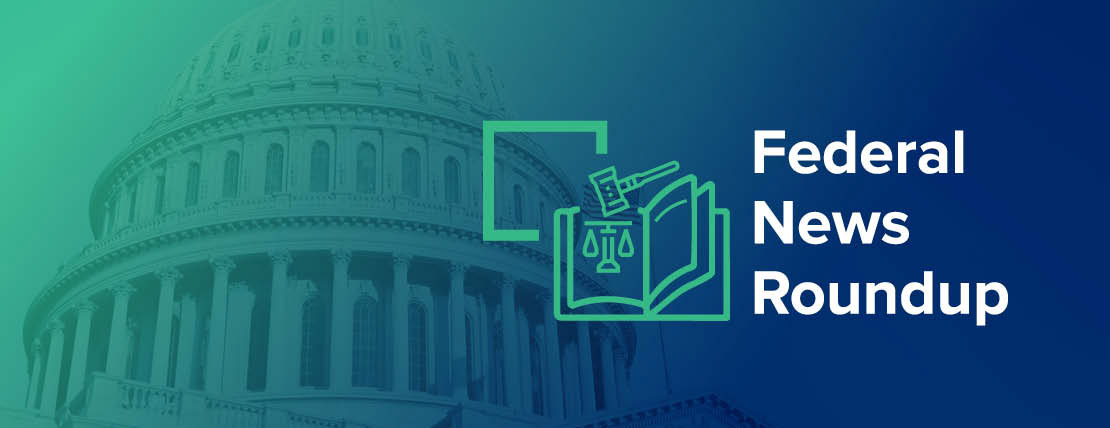- EBSA Nominee Lays Out His Vision for the Agency
- Senate Committee to Vet Candidates for DOL, EEOC Posts
- Bill Aims to Raise Federal Minimum Wage to $15 Per Hour
- DOL Head Vows to Uphold Laws Amid Proposed Cuts
EBSA Nominee Lays Out His Vision for the Agency
Daniel Aronowitz, U.S. President Donald Trump’s nominee to lead the Employee Benefits Security Administration (EBSA) as assistant secretary of labor, provided his vision for the agency during his confirmation hearing before the Senate’s Health, Education, Labor & Pensions (HELP) Committee on Thursday, June 5.
EBSA, an agency within the Department of Labor (DOL), was established to protect the rights and benefits of participants in employer-sponsored retirement and health plans. It pursues this through education, compliance assistance and enforcement of the Employee Retirement Income Security Act of 1974 (ERISA).
During the committee hearing, Aronowitz laid out three goals he would pursue if confirmed to the role.
- Improvement of EBSA’s enforcement of fiduciary law. “We will end the practice of open-ended investigations that go on for years,” he said. “We will end the bias against ESOPs [employee stock ownership plans] and other legitimate ways to expand retirement benefits and ownership to America’s workers. And, we will end the regulatory abuse of common-interest agreements with plaintiff lawyers. EBSA’s enforcement will be fair, even-handed and efficient.”
- Greater regulatory clarity for plan sponsors. He stated, “There are many issues that require regulatory clarity and stability so that the system can function properly, including (1) modernizing defined contribution plans to include alternative investments, such as private equity and cryptocurrency; (2) the consideration of ESG [environmental, social and governance] factors; (3) the fiduciary rule as applied to [individual retirement account] rollovers; (4) mental health parity; (5) plan forfeitures; (6) pension risk transfers; (7) tobacco and vaccine surcharges and wellness programs; (8) managing pharmacy benefit managers and healthcare costs; and (9) cybersecurity to protect participants assets — just to name a few key issues. We will end the era of regulation by litigation by providing clear and effective rules for America’s employee benefit system. We will restore discretion to plan fiduciaries as Congress intended in the ERISA statute so that fiduciaries, not the government or plaintiff lawyers, decide what is best for plan participants.”
- Retirement and healthcare benefit expansion. He stated, “I will champion expanding retirement and health plan access to America’s independent contractor workforce, which includes association health plans. I will also champion the cause of better mental health benefits to America’s workers. ... I also look forward to working with Congress for legislative changes … to meet the challenges of the modern economy and workforce, including the coming wave of artificial intelligence and its impact on American workers.”
In hearing cross-examination, Aronowitz appeared to support the Retirement Savings for Americans Act (RSAA), legislation that would establish a federally run retirement plan. When asked by Sen. John Hickenlooper (D-Colorado), one of the bill’s cosponsors, at the end of the hearing whether he would commit to supporting the RSAA, Aronowitz simply stated, “I commit.”
While proponents of the legislation contend it could improve retirement outcomes, critics contend it would undermine the private retirement system, as employers would be less likely to sponsor a retirement plan if the federal government provides a plan and covers the costs.
If eventually confirmed by the committee, Aronowitz’s candidacy would be put to a full Senate vote.
Senate Committee to Vet Candidates for DOL, EEOC Posts
The Senate’s Health, Education, Labor and Pensions Committee will examine President Trump’s nominees for three posts within the DOL and one post within the Equal Employment Opportunity Commission (EEOC) during hearings scheduled for Wednesday, June 18.
Candidates to be vetted by the committee include:
- Andrew Rogers, for the position of administrator of the DOL’s Wage and Hour Division (WHD);
- Anthony D’Esposito, for DOL inspector general;
- Jonathan Berry, for DOL solicitor; and,
- Andrea Lucas, for EEOC member and chair.
The DOL is responsible for the administration of federal laws governing occupational safety and health, wage and hour standards, unemployment benefits, and reemployment services. It also has some oversight over economic statistics. The WHD enforces federal labor laws that aim to protect workers’ rights, particularly around compensation and benefits, and ensure fair treatment.
The EEOC investigates complaints of job discrimination based on race, color, religion, sex (including pregnancy, transgender status and sexual orientation), national origin, disability, age (40 or older), or genetic information. The five-person agency has had just two members since Jan. 28, meaning it currently does not have a quorum to issue formal guidance and regulations, or rescind existing ones.
Bill Aims to Raise Federal Minimum Wage to $15 Per Hour
Sen. Josh Hawley (R-Missouri) and Sen. Peter Welch (D-Vermont) on Tuesday, June 10, introduced a bill to raise the federal minimum wage to $15 per hour. The Higher Wages for American Workers Act would set the nationwide minimum wage to $15 on Jan. 1 of the first year after it is enacted, and raise it annually on the basis of inflation.
The federal minimum wage currently stands at $7.25 per hour, and hasn’t been raised since July 24, 2009. Over the past decade-plus, primarily Republican lawmakers have pushed the issue to the states to address. Thirty states plus the District of Columbia currently have minimum wages that exceed the national standard.
The odds of the Hawley-Welch wage legislation reaching the Senate floor, let alone obtaining the 60 votes needed to advance in the chamber, aren’t great given that Republicans hold 53 of the 100 Senate seats, and many in that party are not supporting the measure.
DOL Head Vows to Uphold Laws Amid Proposed Cuts
Secretary of Labor Lori Chavez-DeRemer on Thursday, June 5, provided her take to lawmakers about how the DOL will do “more with less” to protect American workers, as the Trump administration aims to cut the department’s budget by 35% — primarily by laying off 4,000 full-time employees (approximately one-fourth of its workforce) in 2026. Among the slated layoffs would be 245 from the WHD, which would downsize from 1,151 full-time staffers to 906.
When pressed by Democratic members of Congress on how the agency will maintain its ability to uphold labor laws — particularly, those related to wage theft, worker misclassification and dangerous working conditions — with fewer inspectors on board, Chavez-DeRemer stated that while she would use the “full capabilities” of the DOL to enforce the law, helping employers understand the rules should be paramount.
“For companies and businesses who need help with compliance, we want to do that first,” she said. “They are the first line of defense for the American worker.”
Editor’s Note: Additional Content
For more information and resources related to this article, see the pages below, which offer quick access to all WorldatWork content on these topics:








